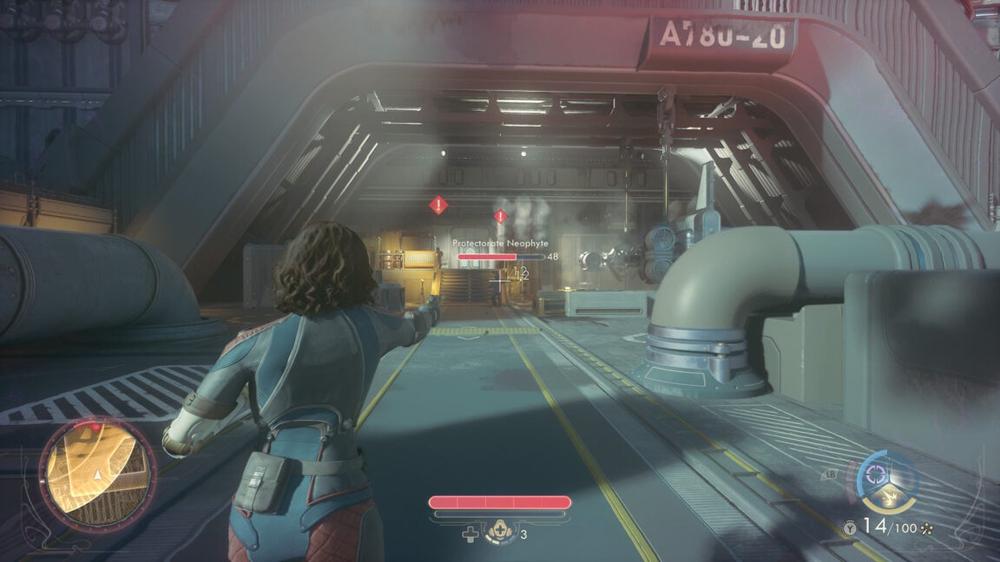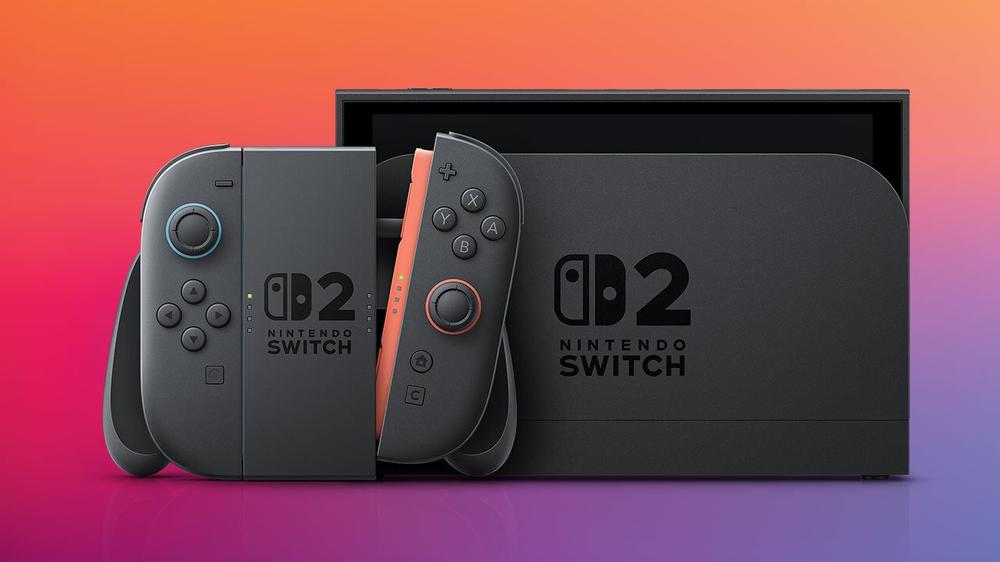It has been nearly six years now since The Outer Worlds threw players into the deep end, forcing them to acclimate to the game's far-future, ultra-corporate intergalactic dystopia amid lots of Fallout-style shooting and questing. The prologue for The Outer Worlds 2—which I got to play as part of a preview build ahead of the game's planned October 29 launch—throws players into a different kind of deep end, asking them to fill the shoes of an agent in the storied semi-militarized police force of the Earth Directorate.
The over-the-top propaganda that leads the game off suggests the Earth Directorate is here to protect colonists from out-of-control corporations and tyrannical governments. But your first mission goes in a different direction, sending you on a secret mission to the "out of jurisdiction" Arcadian system, a secretive dictatorship where all the skip drives that power interstellar travel are supposedly manufactured. You've been asked to help expropriate a rare, "unsealed" skip drive core, which can then be opened up, studied, and maybe even copied without the risk of catastrophic explosion (the "right to repair" folks in the audience might be nodding their heads sagely at this point).
Choose your choice
I won't spoil things by discussing just how the mission goes off the rails or talking about the somewhat vague twist that closes out the playable prologue. But I will gush a bit about how the first game's mix of retro-futuristic set-dressing and sardonic, cynical writing style immediately shine through, even with the change in perspective. A mix of strong voice acting and motion capture immediately drew me back into the Outer Worlds universe, even when the characters were delivering ridiculous lines like "You’re not just a cog in the machine. You’re THE cog!"
Before you set out, you can customize your character's look and background, down to a wide variety of fetching prosthetic limbs. Instead of the explicit D&D-style attribute points from the first game, though, the sequel lets you choose instead from a selection of broad skills and traits (both positive and negative) that offer percentage-based modifiers to everything from base health and melee damage to companion ability charge time.
Right from the jump, The Outer Worlds 2 is pretty up front about showing you how these choices matter in more than just a statistical sense. A malfunctioning door early in the game can be opened directly by a "brawny" character's strength or an engineer's ingenuity, for instance, while everyone else has to figure out a way to crawl around the problem through some nearby ductwork. And while UI tooltips note which traits you need for many choices, certain gameplay paths and options at points seem completely hidden from characters without the right traits.
The sequel's early moments also seem to go out of their way to craft custom lines for NPCs to fit your chosen background, in ways I didn't really notice until I replayed the prologue with different characters. When I played an agent with a "Heroic" background, for instance, my mission briefing focused on how important the skip drive was to "the imposition of righteousness" throughout the galaxy. My "Professor" character (described in game as an Indiana Jones-style "full contact archaeologist) got sold on the "propagation of knowledge" the drive enables.
Then there's the way the game stresses a number of early dialogue choices, telling you how your fellow agents will remember when you choose to treat them with eager support or stern rebuke at key moments. Without getting too much into early game spoilers, I'll say that the medium-term consequences of these kinds of decisions are not always obvious; concerned players might want to keep a few save files handy for gaming out the "best" outcomes from their choices.
Bang bang
The early moment-to-moment gameplay in The Outer Worlds 2 will be broadly familiar to those who played the original game, right down to the Tactical Time Dilation device that slows down enemies enough for you to line up a perfect headshot (though not enough for Max Payne-style acrobatics, unfortunately). But I did find myself missing the first game's zippy double-jump-style dodging system, which doesn't seem to be available in the prologue of the sequel, at least.
The game's first action setpiece lets you explicitly choose whether to go in guns blazing or focus on stealth and sneak attacks, but characters that invest in conversational skills might find they're able to talk their way past some of the early encounters. When it comes time to engage in a firefight, thus far I've found the "Normal" difficulty to be laughably easy, while the "Hard" difficulty is a bit too punishing, making me wish for more fine-tuning.
The prologue stops before I was able to engage with important elements like the leveling system or the allied computer-controlled companions, making it a rather incomplete picture of the full game. Still, it was enough to whet my appetite for what seems set to be another tongue-in-cheek take on the space adventure genre.

 The Verge’s favorite pet gear for 2025
The Verge’s favorite pet gear for 2025